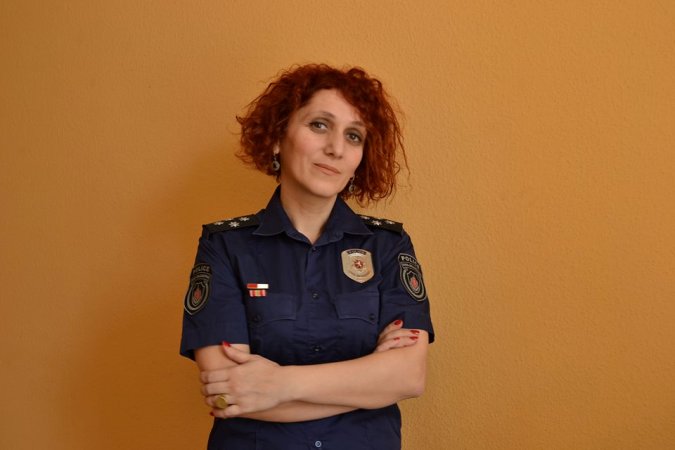From where I stand: “Freedom Is Priceless”
Date:

Maia Pelishvili; Photo: Nurlana Akhmedova
I joined the police to help others, but when I attended the course on domestic violence at the Academy, I found out that it was me who needed help. I acknowledged that I had been a victim of domestic violence for 15 years, and joining the police was the very first step I took against the will of my abusive husband. Soon this step completely changed my life: I moved out with my children in two months and put an end to the violence.
That was 10 years ago, but for some people it is still a surprise to see a policewoman. “Isn’t it hard?” they often ask, and I always explain that the only thing that matters is professionalism; it has nothing to do with gender. Being a woman is only an advantage for me to do my job: when I respond to a call about domestic violence, the victims open up more. “You are a woman and you can understand me” - I often hear this phrase, but sometimes they may choose to be silent. If that happens, then my case helps: I tell them my story and this immediately builds rapport.
I can understand the women who become the victims of domestic violence. I have faced this challenge myself, but my own experience has shown me that freedom is priceless! Freedom has a special meaning to us, the women who overcame domestic violence. We start to enjoy the feeling that nobody is limiting us; we are not afraid of hearing a knock on the door... Such freedom is very valuable. I always tell those women, who endure this problem because of fear, stereotypes, social situations or other factors, that they should not tolerate violence at any cost.
Maia Pelishvili, 43, is a neighborhood inspector-investigator at Kvemo Kartli Police Department. She has been working for the police for 10 years. Most of her duties are related to domestic violence and juvenile issues. Maia has attended many trainings on these topics, and she regularly participates in training courses organized by UN Women, within the framework of the UN Joint Programme “For Gender Equality in Georgia”, funded by the Government of Sweden. At the same time, Maia’s activities contribute to Sustainable Development Goal 5 on achieving gender equality and its objective to eliminate all forms of violence against women and girls.